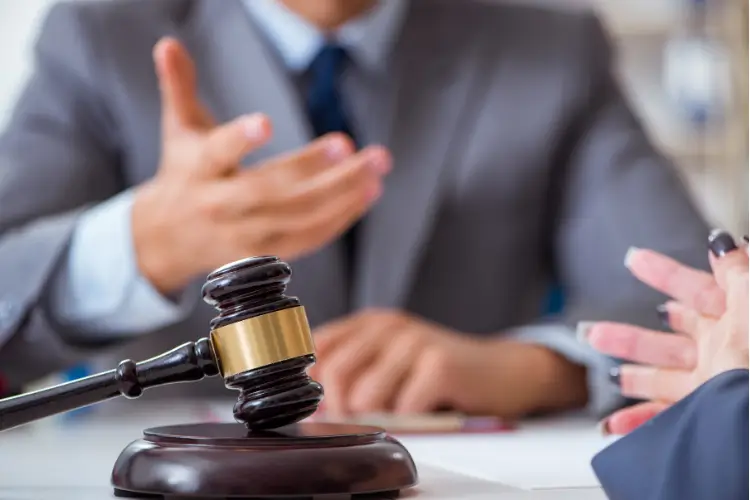Evidence takes a central position in all criminal court cases to decide their outcomes. Both parties in a trial depend on evidence to construct their respective cases. The value of evidence is vital in court proceedings because it helps verify facts and both confirms and refutes accusations while shaping judicial or jury decisions. Physical evidence together with testimonies and digital records must have high quality and be relevant and credible in order to succeed or fail a case. The success of criminal cases depends on demonstrating solid evidence which backs up court arguments yet evidence inadequacy will lead to acquittal or conviction.
The essential function of evidence within criminal trials exists to prove or disprove all statements made during a trial by the litigants. Through evidence the judge or jury receives proper information to determine facts about guilt or innocence. The prosecutor must demonstrate beyond all reasonable doubt that the defendant performed the act of guilt and evidence stands as the essential instrument for meeting this burden. The defense gathers evidence that opposes the prosecution’s arguments together with proof intended to undermine the suggestion the defendant engaged in criminal conduct. A criminal lawyer Brampton ensures effective evidence collection and presentation since it remains essential for safeguarding defendants’ legal rights and delivering a balanced trial process.
Types of Evidence in Criminal Trials
Multiple forms of evidence exist for criminal trials which perform specific purposes throughout the proceedings. The classification of physical evidence includes all real evidence linked to a crime through material such as weapons or clothing or fingerprints. Physical evidence such as stolen property located in possession of the defendant serves to demonstrate their involvement in criminal charges. Testimonies provided by witnesses have a crucial function in criminal court evidence. The statements made by witnesses along with expert statements and those of the defendant create important evidence that reveals what transpired before the alleged criminal act.
Criminal cases depend critically on the combination of physical evidence with testimonies as well as documentary evidence. Written records together with contracts, digital data and video footage serve as evidence which support statements from both sides. The security footage recorded at places where crimes happened provides essential evidence by showing video documentation of the incidents. Digital documentation has become a vital element during criminal trials because modern technology allows the use of text messages alongside emails and social media posts to prove motives and connections between suspects. Multi-layered evidence requires a thorough examination by a criminal lawyer Brampton who will enhance its presentation to establish the case’s most significant points.
How Evidence Supports the Prosecution’s Case
Evidence serves as the main foundation which the prosecution utilizes to establish beyond doubt that the defendant is guilty. All evidence is required to possess relevance to the specific crime as well as direct connection with the investigation. The prosecution can prove criminal defendant presence at crime scenes through DNA evidence discovered during investigations. Evidence strength stands as the key indicator determining case strength because jurors depend on evidence to develop their opinions about defendant guilt. The prosecution must guarantee legal evidence acquisition and unaltered evidence preservation because any evidence tampering can create problems for the criminal case.
The legal evidence presentation requires both order and logical reasoning by the prosecution. Ordinary evidence presentation is insufficient unless the evidence becomes an integrated narrative that reveals its relationship to other evidence. During trials prosecutors need to explain why different forms of evidence matter to demonstrate that they prove the defendant responsible for the alleged crime. The prosecution uses combined physical evidence and witness testimony to create detailed descriptions about what occurred. Justice is built through evidence that functions as individual elements to create the case structure which delivers strong proofs to the court.
How Evidence Supports the Defense
The defense uses evidence as an instrument to question prosecution arguments and establish possible doubt. The defense team never needs to prove the defendant does not have a guilty charge but must question the evidence that the prosecution has presented. The defense usually works to undermine prosecution evidence through three primary methods: they identify problems in the evidence through contradiction or propose new solutions or challenge evidence details. When prosecution shows a fingerprint as evidence the defense counsel would either prove it was situated innocently elsewhere or establish it did not come from the accused person.
During the defense strategy evidence is introduced which supports what the defendant claims happened during the case. The defense may introduce surveillance recordings demonstrating the defendant’s location during the suspicious time and characterize witnesses who validate the defendant’s commendable conduct. The defense needs to provide necessary evidence because it serves to grant the defendant’s perspective equal courtroom weight. A criminal lawyer based in Brampton uses every piece of available evidence to design a defense strategy that fights against prosecution theories and demonstrates why their client is either not guilty or less responsible for the allegations.
Conclusion
All criminal court proceedings heavily depend on the presented evidence for their success. The cornerstone makes up the foundation of the arguments presented by the prosecution and the defense team. All pieces of evidence including physical evidence and expert opinions and digital data and witness testimonies combine to create a strong case structure. The evaluation process of evidence credibility together with relevance and proper legal procedures decides whether defendants will spend time in jail or remain free after trial. A solid understanding of evidence function allows defendants together with their legal teams to develop winning cases which protect their legal rights toward reaching fair verdicts. The complex process requires guidance from a criminal lawyer Brampton who ensures evidence collection and presentation to reach the optimal possible conclusion.




